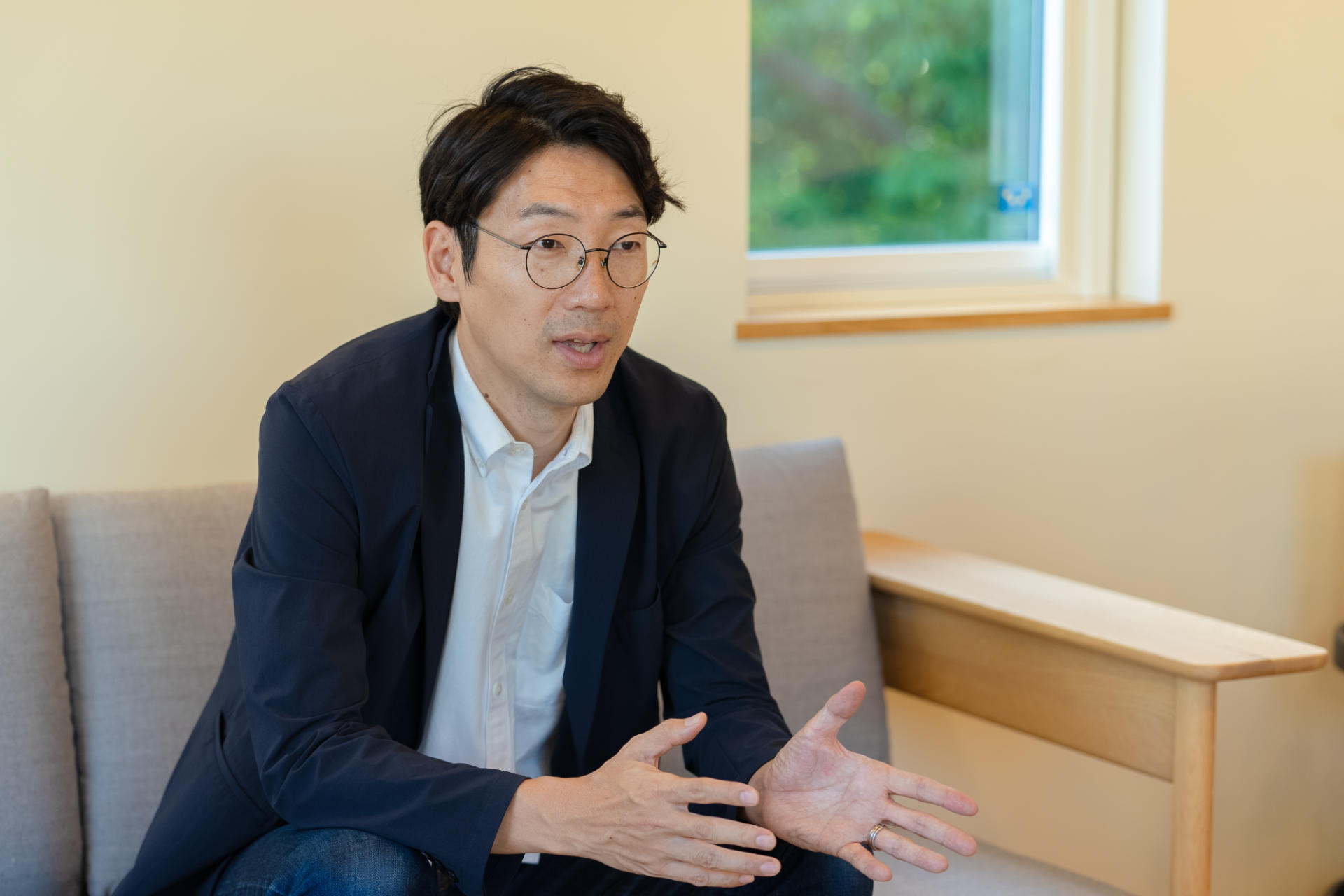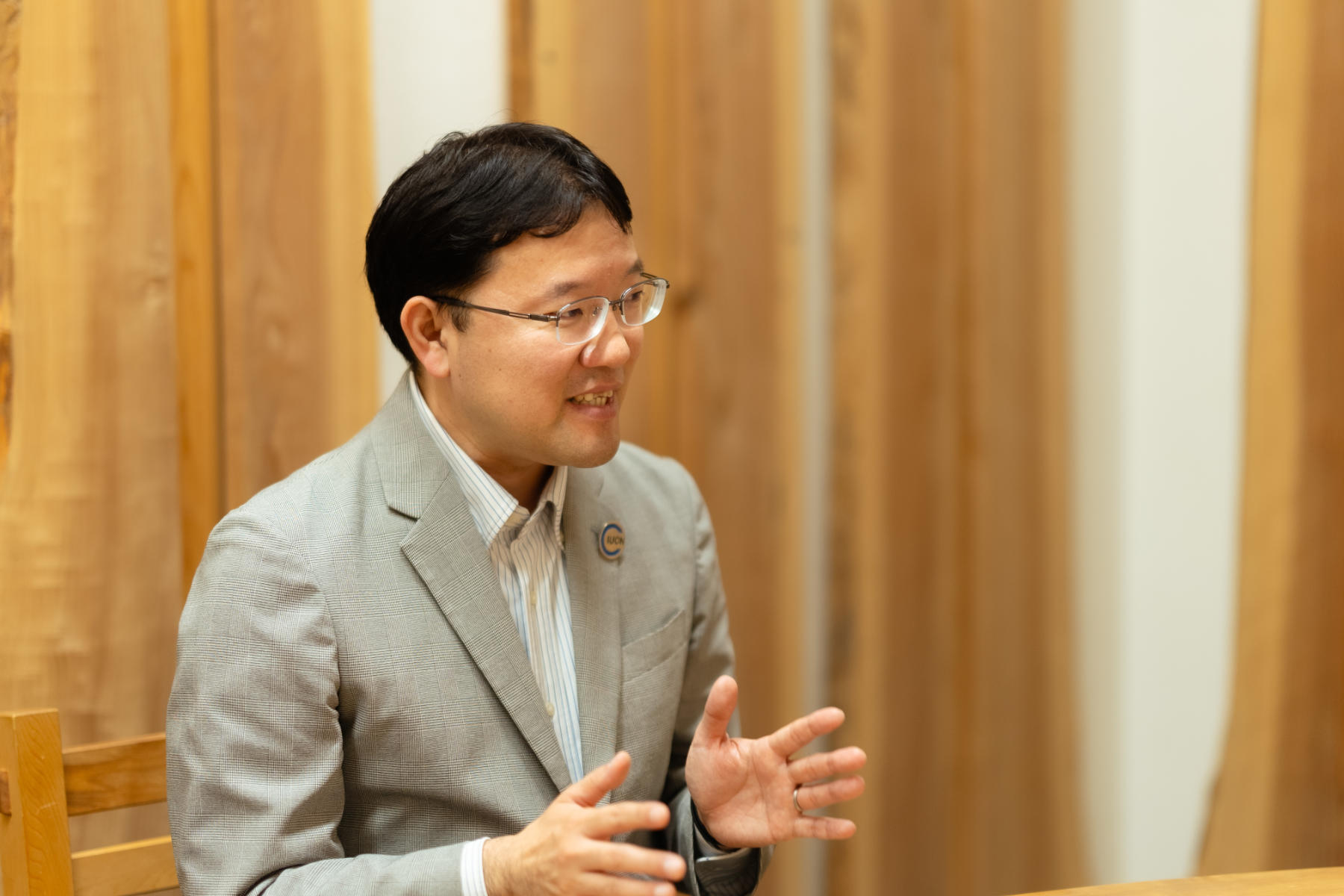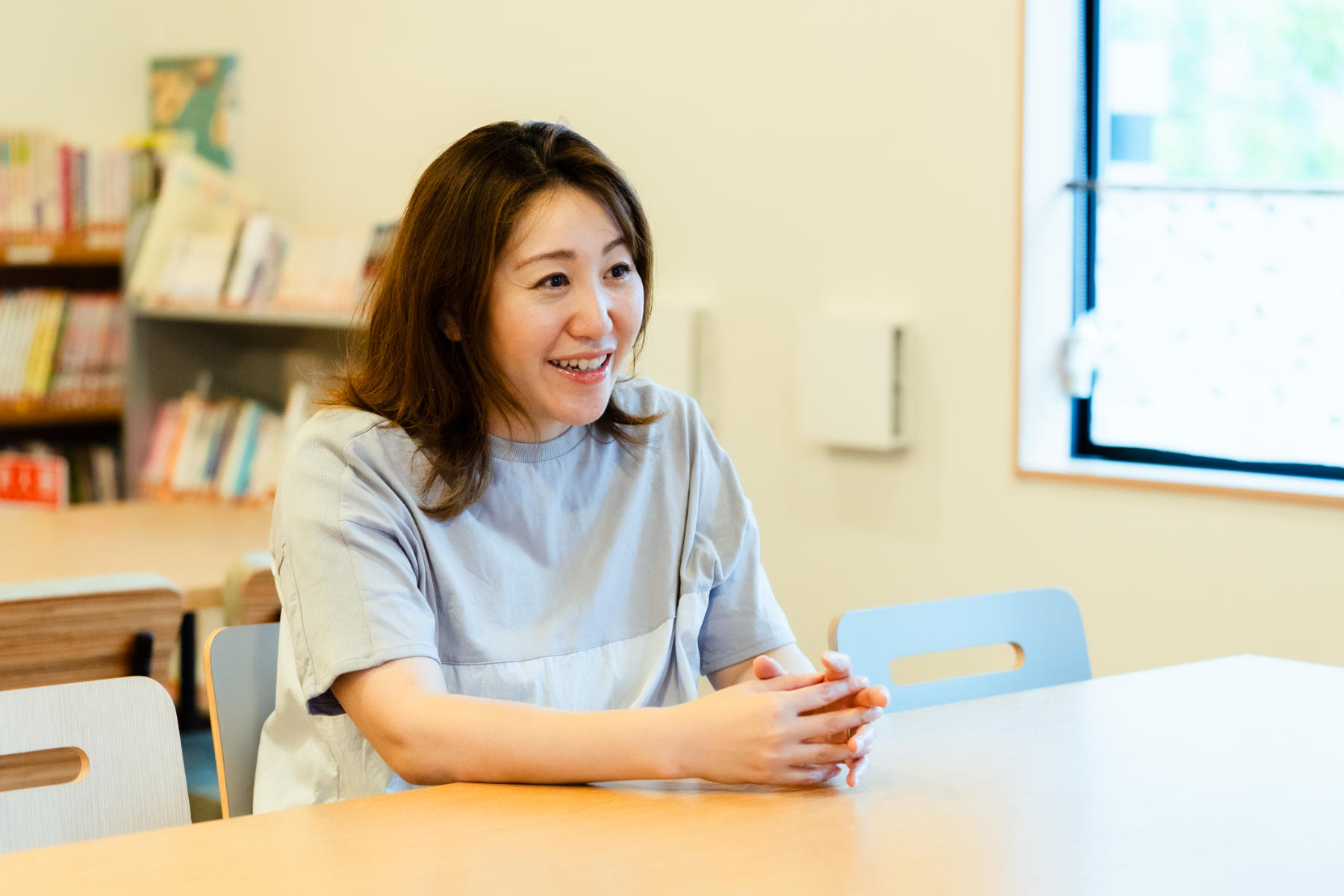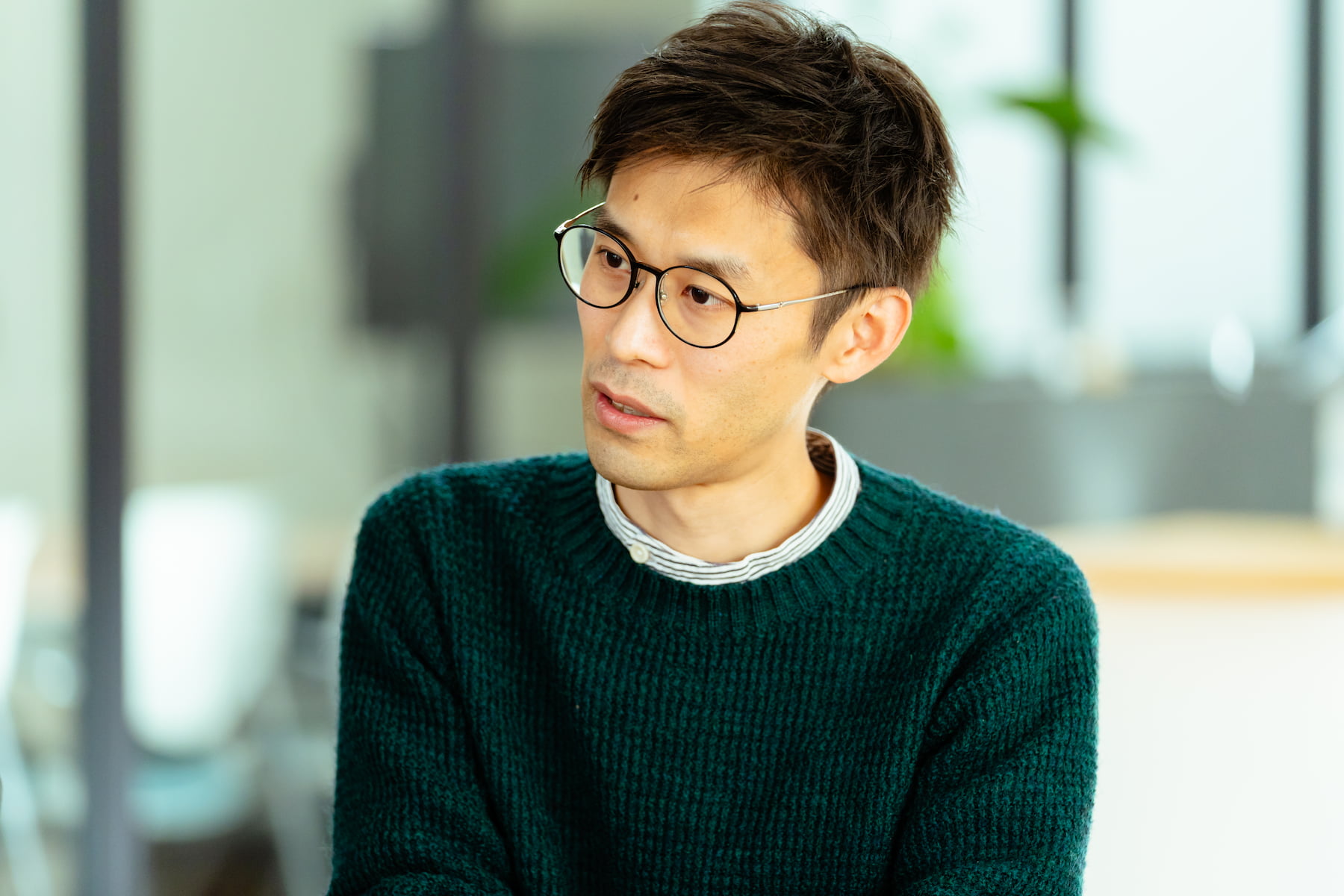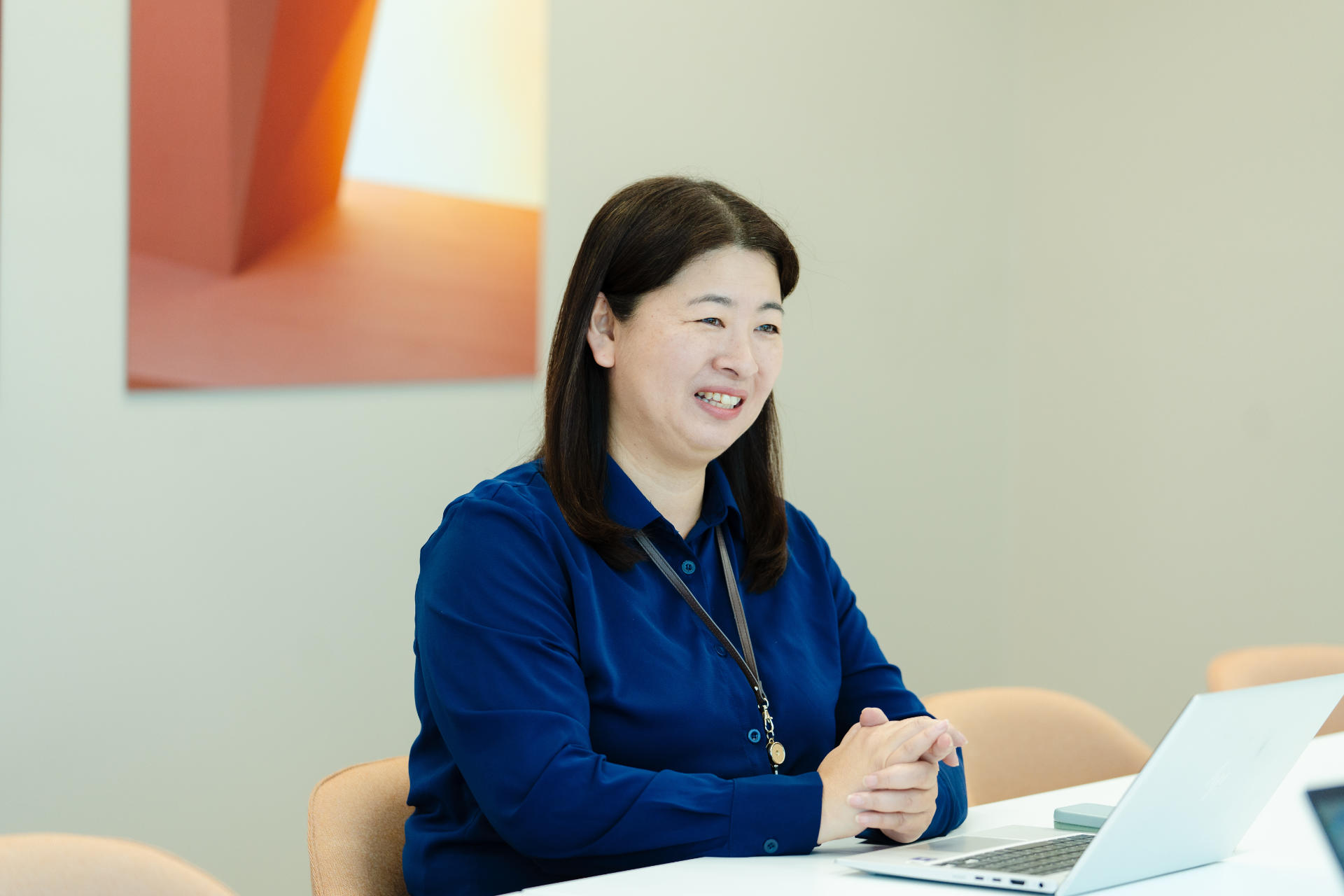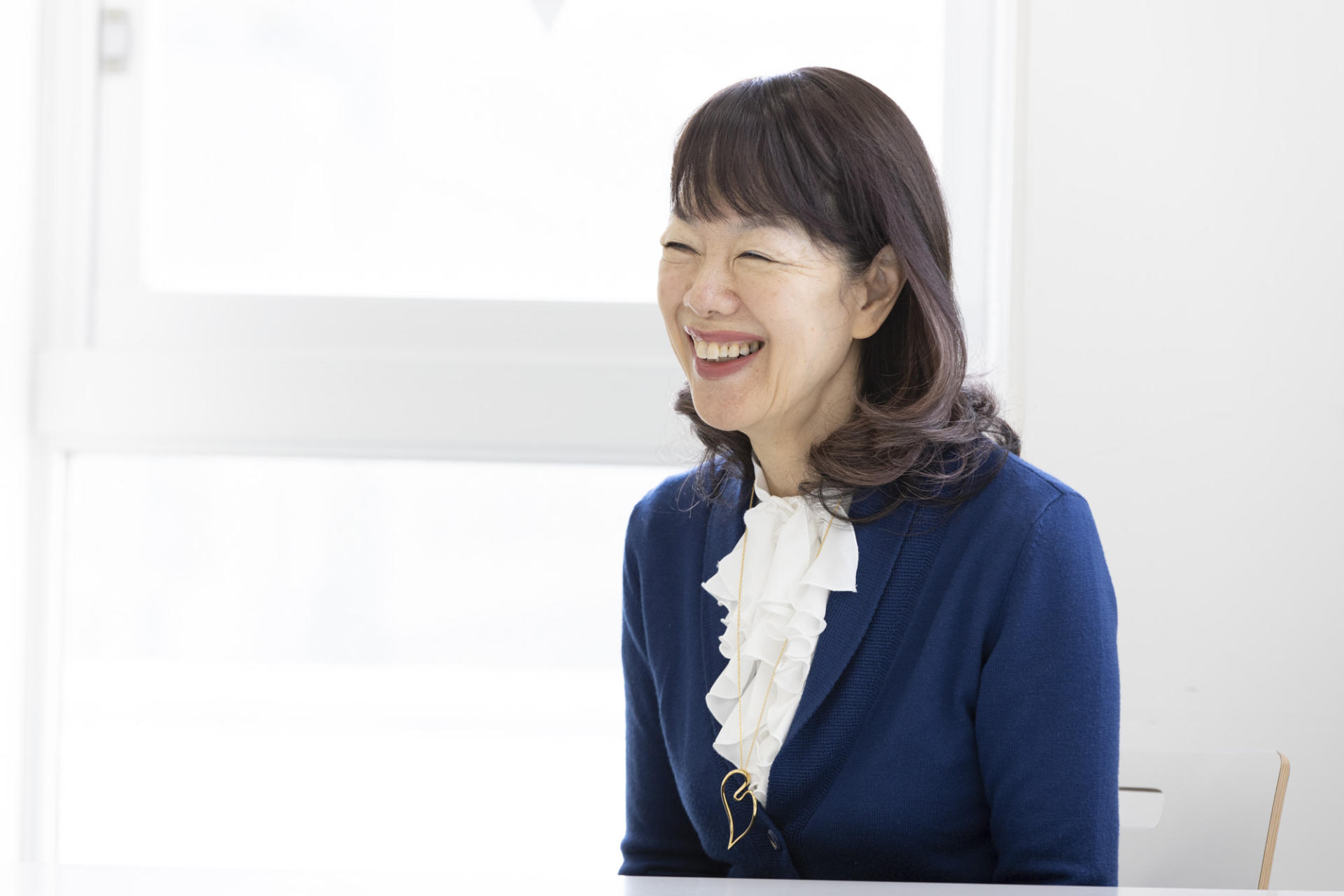CASE 36
The Nippon Foundation
(Jul 1, 2022 – March 31, 2024)
You worked closely with NPOs, and tailored your support to each organization.
The Nippon Foundation supports the solution of social issues, in many nations and sectors. It's Japan's largest such organization, and one of its missions is to support the future independence of all children. The "Children's 3rd Place" program, established in 2016, fosters that capability. Hitoshizuku have been involved since 2022, and in 2023 we took charge of general PR for three of the many "3rd Places." We asked about the problems they were facing, and the effect of our support.
Your experience allows you to see things from an NPO’s perspective.
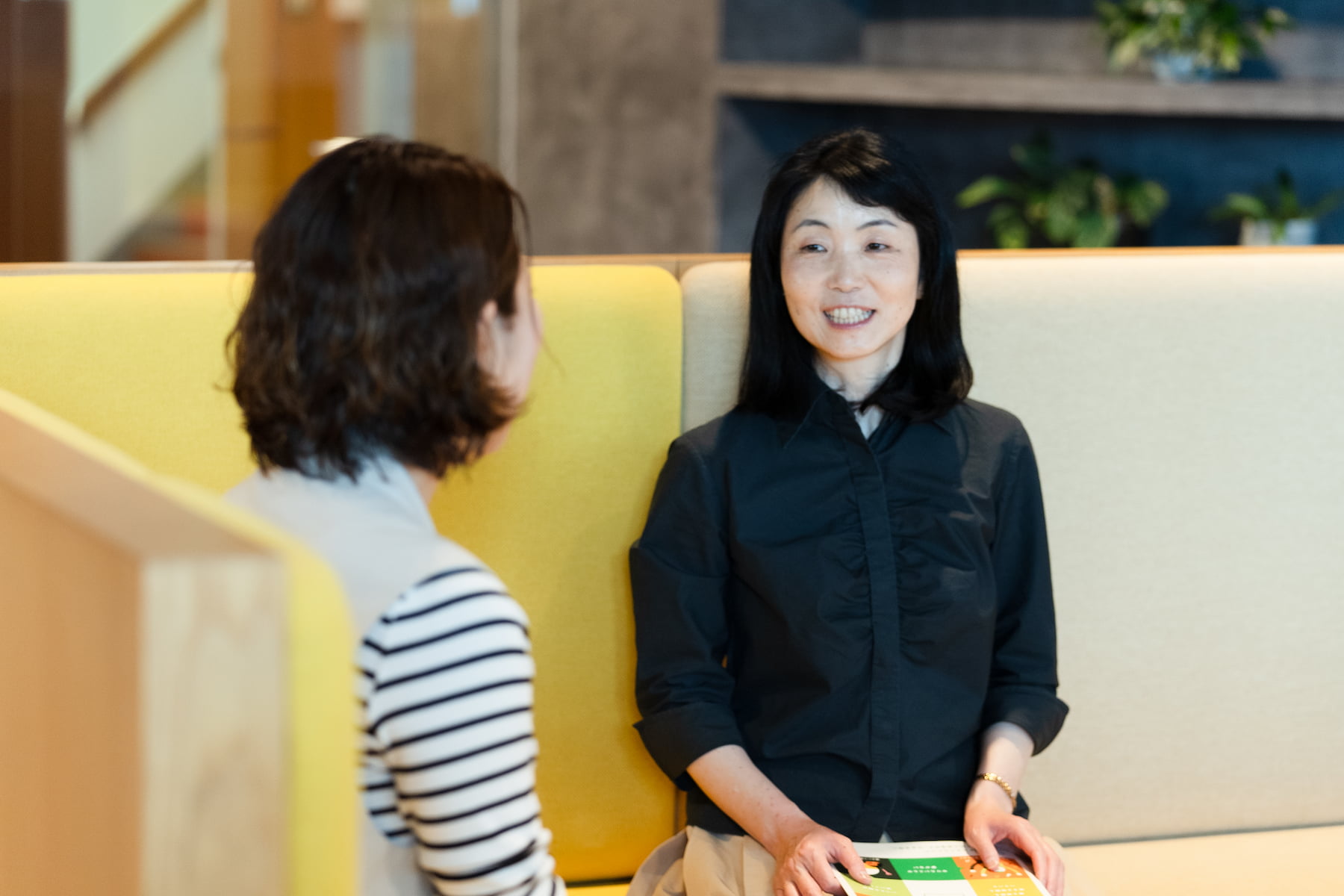
Mami Kaneko, Hitoshizuku (Kaneko):
A PR company you work with introduced you to Hitoshizuku, and we started supporting you on the Children’s 3rd Place program. The Nippon Foundation is known for tackling social issues in many different fields, and for being the largest such organization in Japan. We were delighted that you got in touch, so thank you very much. First of all, could you outline the Children’s 3rd Place program?
Sachiyo Iizawa, Child Support Team, Public Service Projects Department, the Nippon Foundation (Iizawa):
It started in 2016. The government analyzed multiple studies, and found that around one in three elementary school students face some sort of difficulty, such as financial concerns, or problems with family or school life. It’s hard for families and schools alone to solve those issues, so we set out to increase the number of “third places” that can offer their support. These locations offer meals and everyday stability, and from that platform they use lessons and practical experiences to build a sense of safety and resilience. The sites vary in size. They’re operated by charities and social welfare organizations, with the Nippon Foundation offering intermediary, operational support.
Kaneko:
When you contacted us about PR, what challenges were you facing?
Iizawa:
It felt crucial to improve the PR capabilities of the organizations running each location. Right now there are around 200 sites. But at the time there were around a hundred, and our goal was to increase that number. We needed to faithfully promote Children’s 3rd Places, to generate more supporters willing to open a location. We were also worried that the children who most needed a third place weren’t aware of them. Every September, after the summer vacation, there’s an increase in social media posts pointing out their existence. I see it on the news. It’s only when everyone has access to a third place that those posts will disappear.
Third places offer possibilities that aren’t available at home or at school. They support children as they grow, and I feel they have so much potential. I’m passionate about promoting them, and tackling this social issue.
Kaneko:
The organizations in charge of each location are in charge of disseminating information. So it was important to understand them, as well as the overall project.
Iizawa:
Yes. We needed to make sure everybody was on the same page. The organizations differ in size and approach, so PR support had to be tailored accordingly.
Kaneko:
Had you heard of Hitoshizuku before?
Iizawa:
Previously, while working for a different NPO, I took part in an NPO-focused PR training session led by your CEO, Hiroshi Kokubo. And some of our staff at the Nippon Foundation had worked with Hitoshizuku on the “Ocean and Japan Project.”
Kaneko:
I was involved in that project, so I was glad to team up again. How did you expect Hitoshizuku to help with your PR challenges?
Iizawa:
I don’t think that many non-profit organizations can afford to hire a PR company. Therefore, very few PR companies have experienced working with an NPO. Most operators of 3rd Places have a small number of staff, who are all extremely busy. Sometimes there isn’t a dedicated PR manager, and sometimes no-one conducts PR at all. Any company offering PR support would have to understand that reality, or it wouldn’t work.
Our ultimate goal was for each organization to develop the ability to conduct PR itself. Hitoshizuku has a lot of experience working with NPOs, and many of your staff have worked in similar roles. So you were a perfect fit.
You prioritized human connections, and tailored your support to individual organizations.
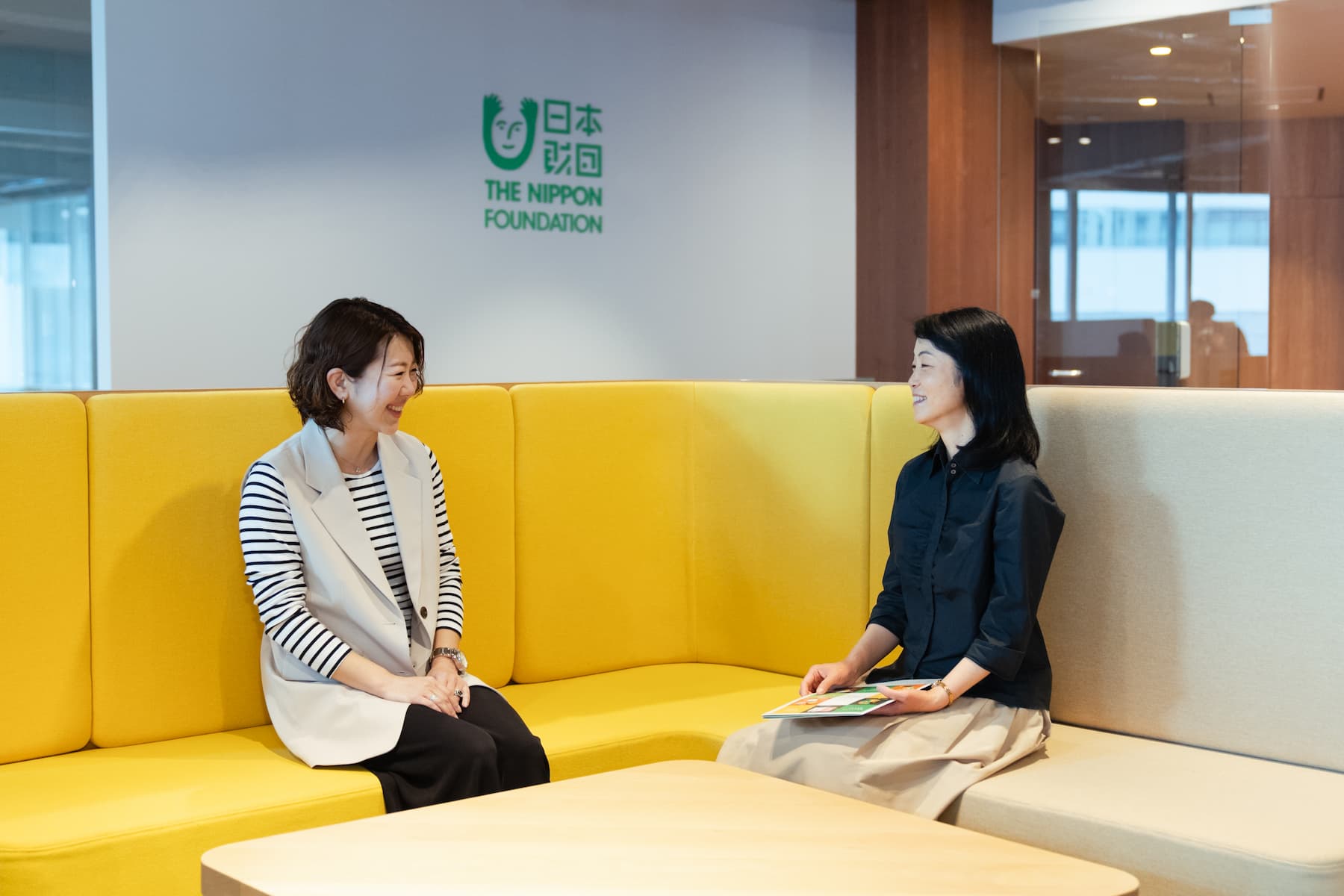
Kaneko:
We teamed up with the PR company you mentioned earlier to provide that support. What’s your impression of the process, and the results?
Iizawa:
You worked extremely well with each individual organization. I don’t think anyone else would have been able to build the same sense of mutual trust. When discussing business affairs, the atmosphere can get quite formal, but somehow that doesn’t happen with Hitoshizuku.
Kokubo always wears striped clothing. And whenever the members of one organization met up with him, they wore striped clothes too! I can’t imagine a better display of trust.
Kaneko:
That was a wonderful moment.
Iizawa:
It felt like Hitoshizuku had more than PR ability; you exuded positive energy. The organizations knew you were there for them, and that put them at ease.
Kaneko:
That’s something I always work hard on. It’s important to have a lack of barriers between the groups giving and receiving PR support. Simply saying, “Please do this,” doesn’t work. The people receiving support feel coerced. I’ve worked at an NPO before, so I didn’t want to offer that style of assistance. I made sure to work together with each organization.
Iizawa:
It’s about maintaining the correct distance between the supporter and the supported. If you do too much, the organizations won’t learn for themselves. But you can’t be too hands-off, either. I think you got it just right. Your success with the various organizations was less about PR knowhow, and more about valuing human connections.
But what’s your impression, after giving a year of PR support?
Kaneko:
At one of the organizations, the staff ended up really enjoying PR work. That stuck with me. Even after our regular meetings, they continued coming up with ideas on their own. It’s hard to conduct PR if you don’t enjoy it. So I was delighted to see that group being really proactive.
Iizawa:
It feels like we’ve all built up our skills. For example, one organization carries out a field trip every year, to the same location. We started to consider its purpose from a PR perspective, and we ended up choosing a new destination. Even outside of PR activities, we’re using what we’ve learned. It’s been very beneficial.
Kaneko:
Great! The year passed in the blink of an eye. The monthly meetings were conducted remotely, and, looking back, it would have been nice to visit each organization in person. I’d like to do that next time, if we have the opportunity to work together again.
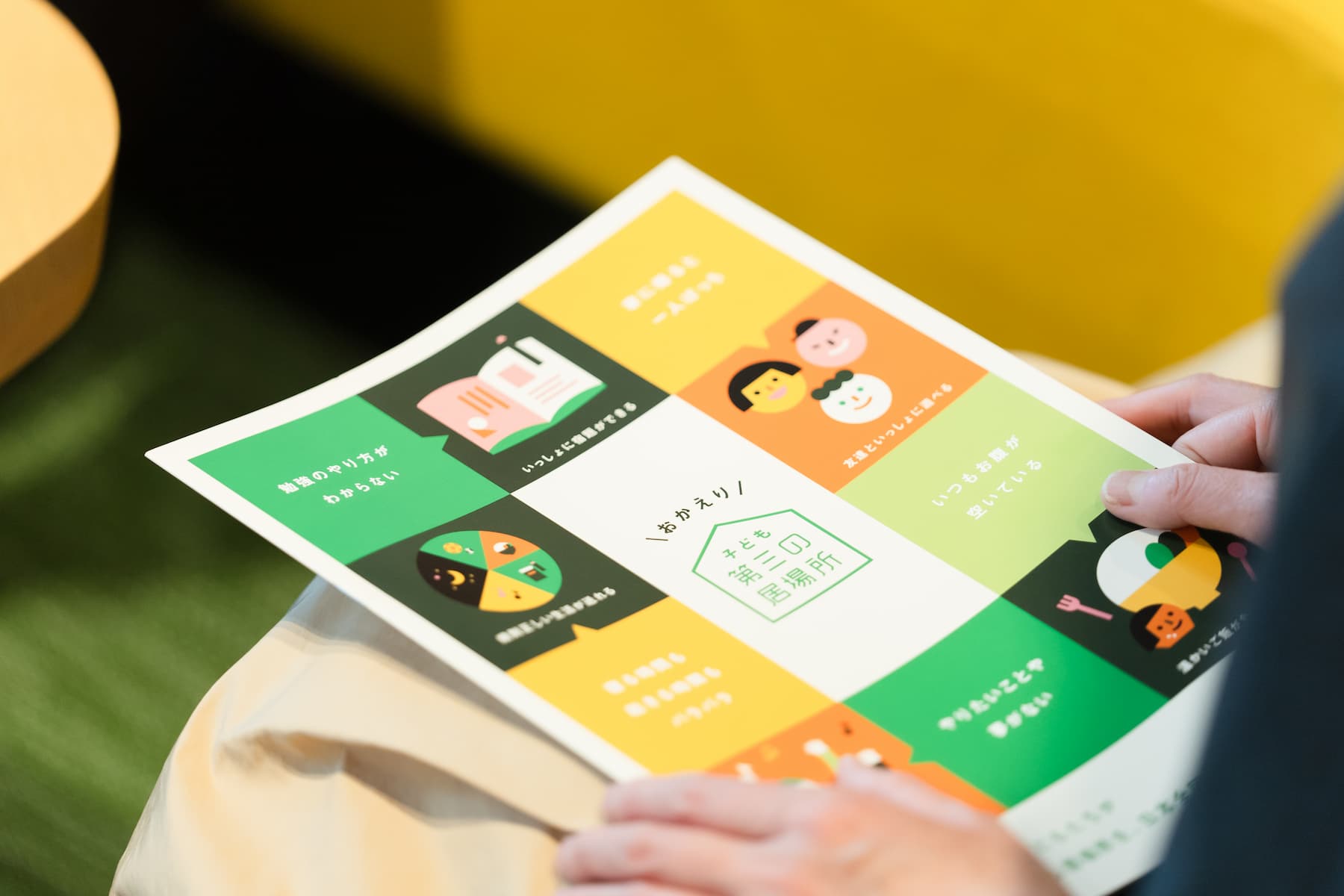
Third places can be improved by hearing from children themselves.
Kaneko:
When you contacted us, you were facing various problems. After one year of support, have you noticed any other changes?
Iizawa:
In April 2024, a TV channel ran a special program about third places for children. It communicated their value very effectively. And it featured an organization running a 3rd Place, who explained the project very clearly. I could tell that the production company had a good understanding. The program made me realize that we’ve acquired the ability to express what we’re doing with clarity.
Kaneko:
It went well, didn’t it? I really enjoyed watching that program. I’d say that 3rd places are still evolving. What does the Nippon Foundation hope to work on the future?
Iizawa:
In 2023, the Children and Families Agency announced that they’d work with local governments to systematically create more third places for children. I think that, in the future, public and private groups will come together to establish them increasingly quickly. One of our initial challenges was to build that momentum, and that’s something that we’ve achieved, to an extent.
Moving forward, we want to focus on the quality of third places. Increasing their quantity is great too. But it’s vital that there are places for children who truly need them. And for that reason, it’s important to continue spreading the word about the value of third places.
Kaneko:
I sincerely hope that the number of third places for children will increase in different regions. Is there anything else you’d like to work on?
Iizawa:
The Children’s 3rd Place program began in 2016, so the first participants are now junior and high school students. So we’re reaching the point where people that actually used these facilities can talk about their value. So far, we’ve focused on increasing the availability of third places around the country. And it’s about time we reflected on the result of those efforts.
Kaneko:
That makes sense. It would be wonderful to hear about the relationships that grew between the children and the staff.
Iizawa:
Enough time has passed for them to properly look back at their experiences, and put them into words. I think that the children’s stories would be really inspiring for groups setting up new spaces. And it would guide them on effective management.
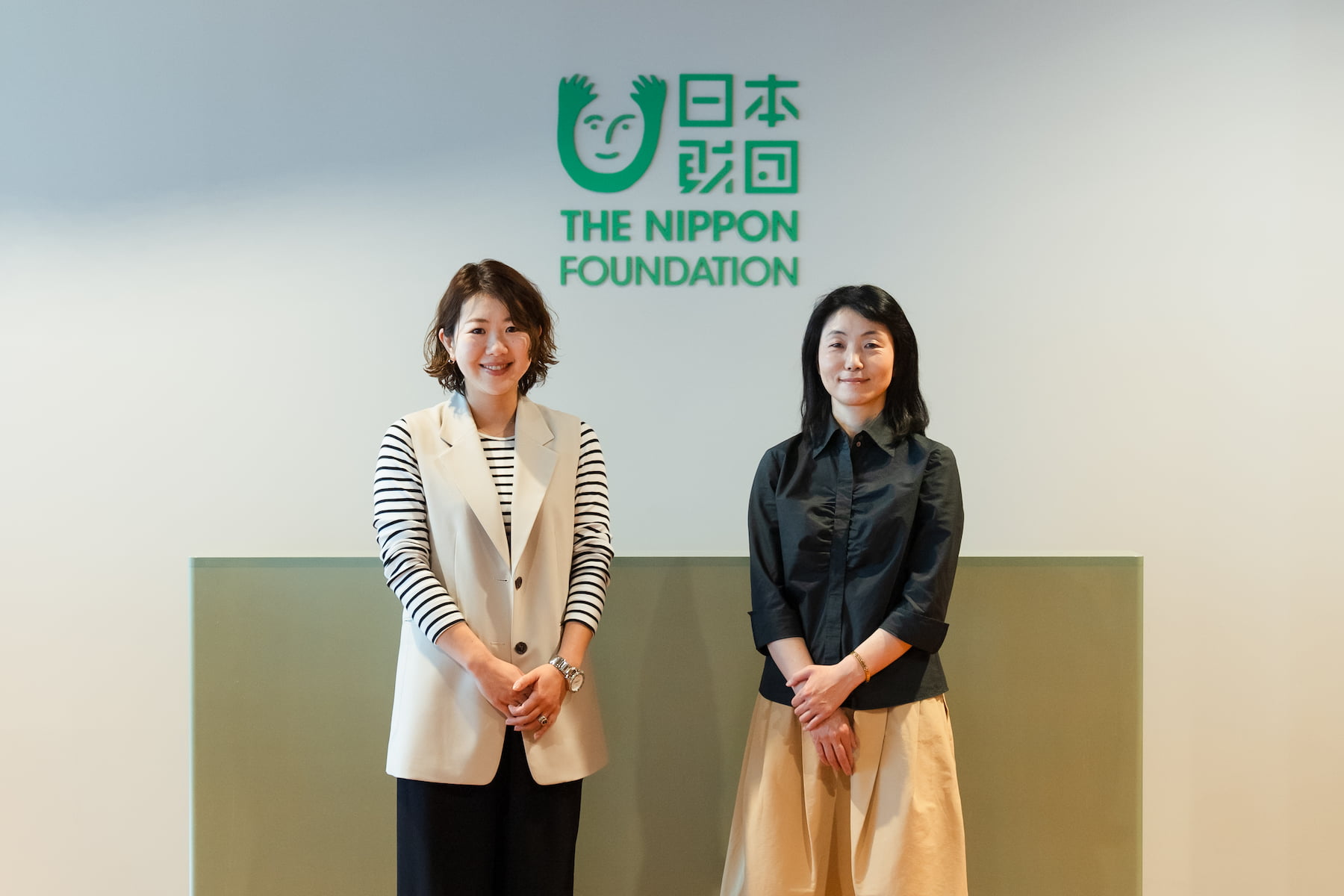
Photography: Hiroyuki Horigome
Editing: Tsujihara Mayuki
Translation Editing: Satomi Furukawa
RECENT WORKS
| Name | Hitoshizuku Inc. |
| Address | 33 Nihonodori Naka-ku Yokohama Kanagawa 231-0021 JAPAN |
| Branch | Hamacho Odawara Kanagawa 250-0004 JAPAN |
| Phone | 81 045 900 8611 |
| info@hitoshizuku.co.jp |
| President | Hiroshi Kokubo |
| Established | March 2016 |
| Capital | 3,000,000yen |
| Business | Advertising & Public Relations Agency Planning & Produciton of Social Good Projects |
| Lawyer | Junna Tei / Yokohama First Law Office |
| Tax Advisor | Satoru Motokoide / Uniques Money Advisory |
| Labor and Social Security Attorney Office Work Innovation | |

